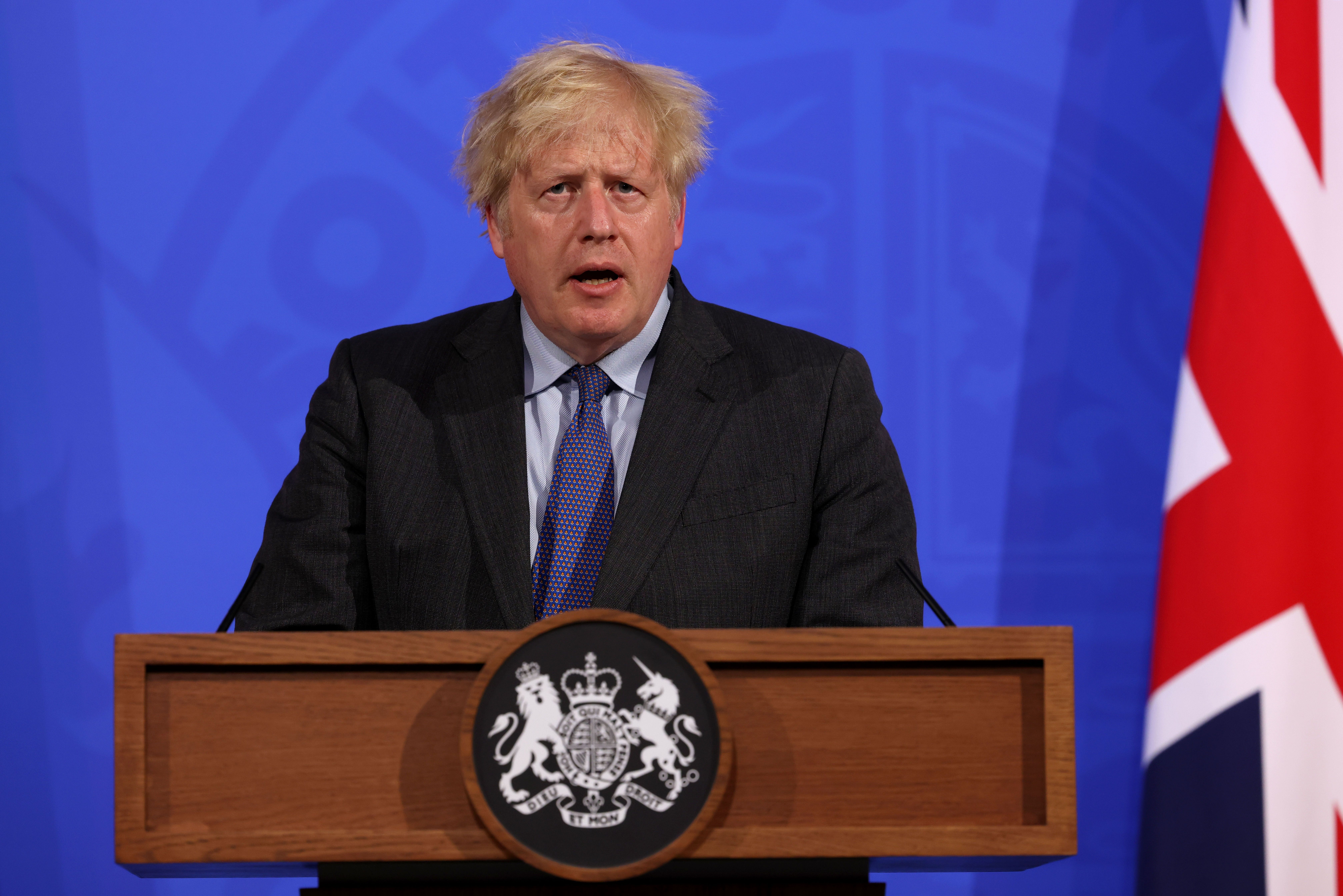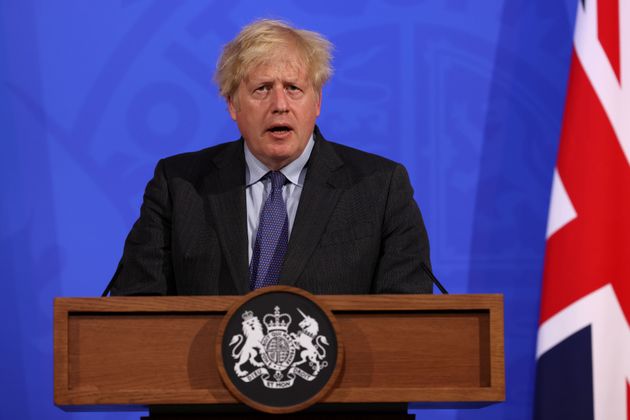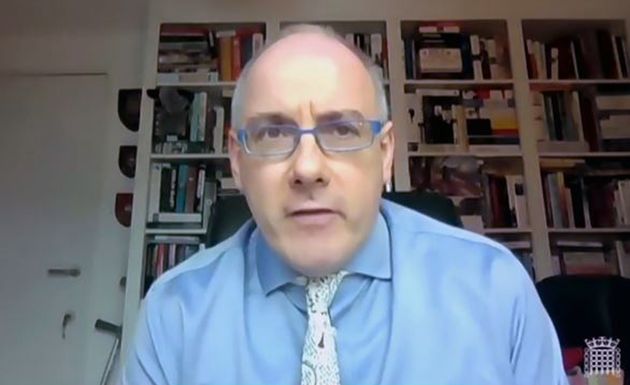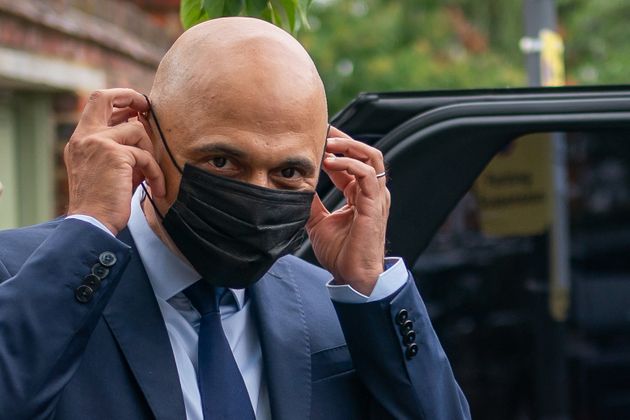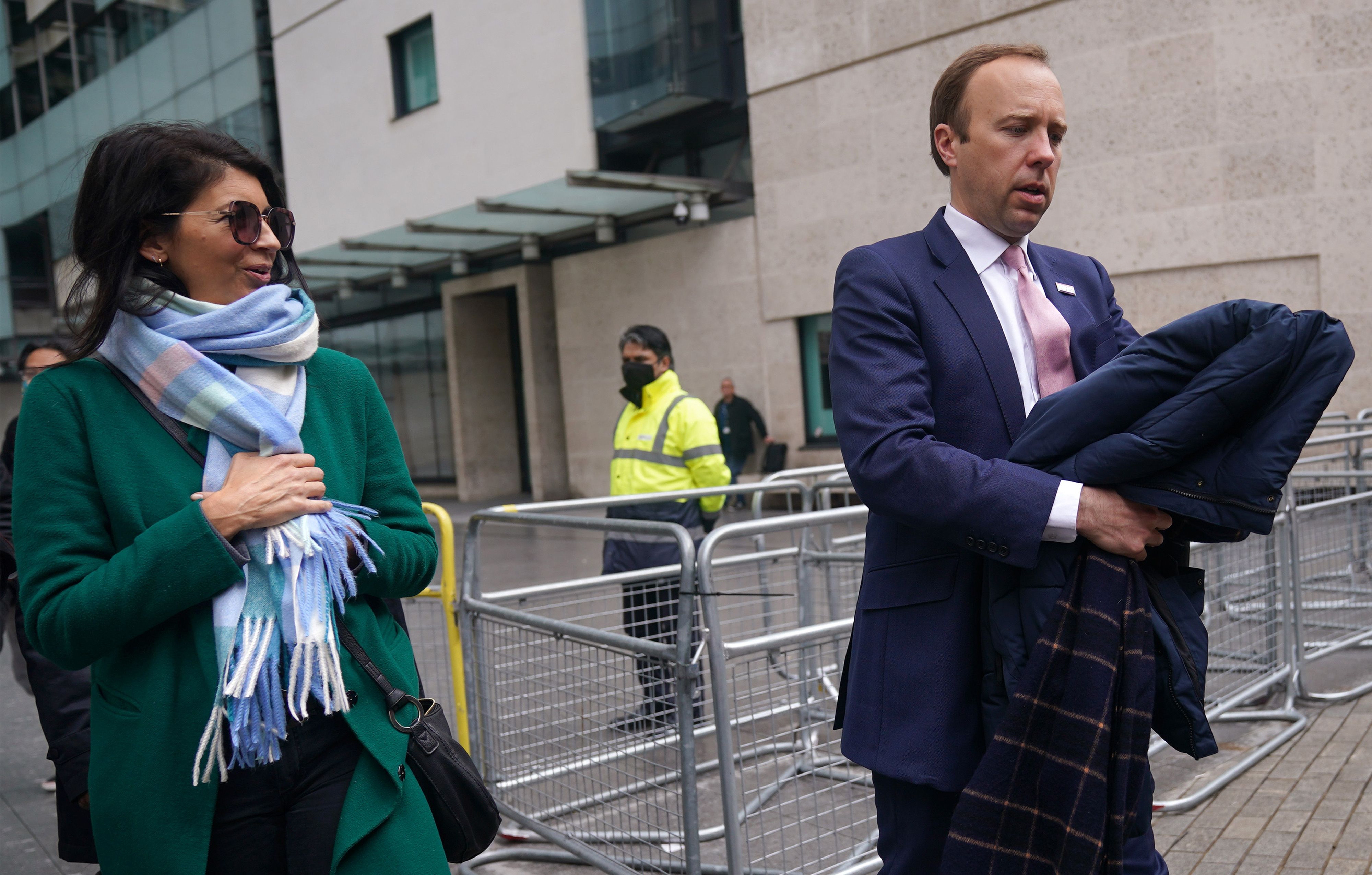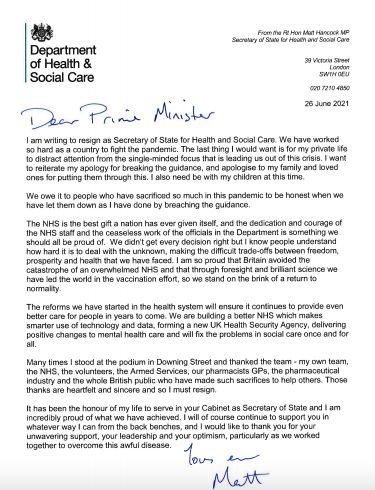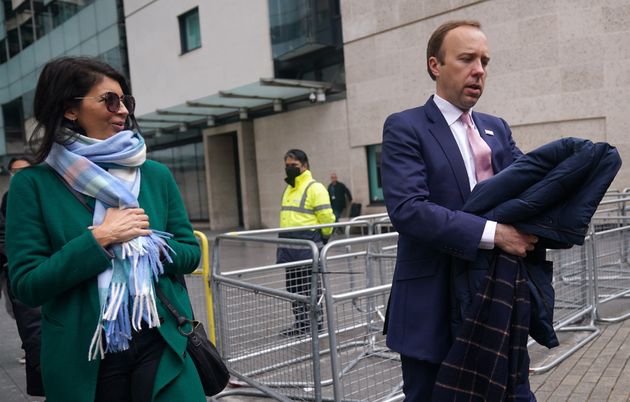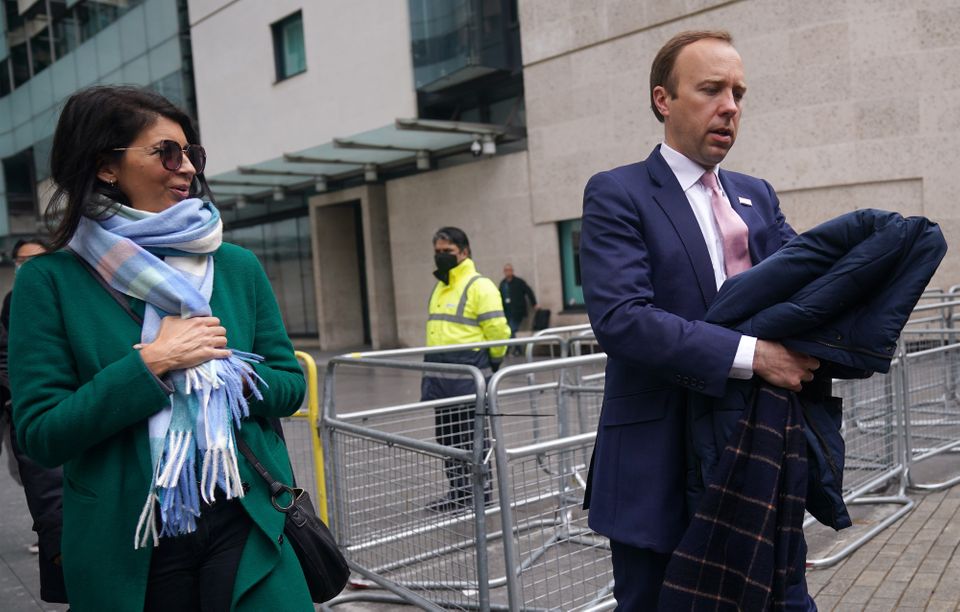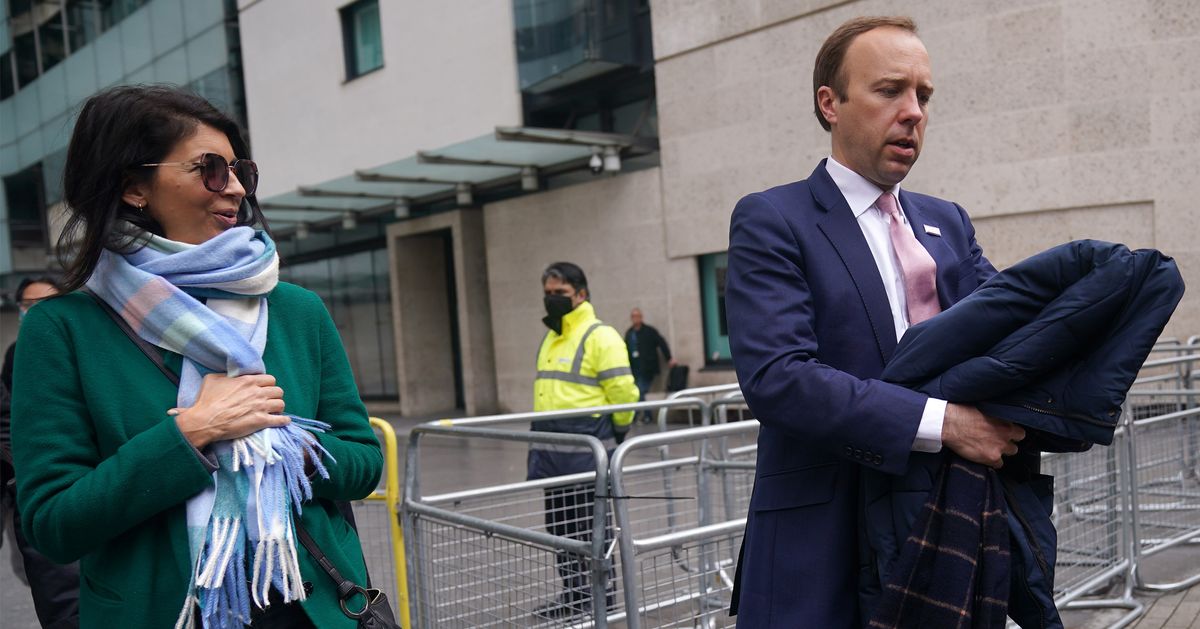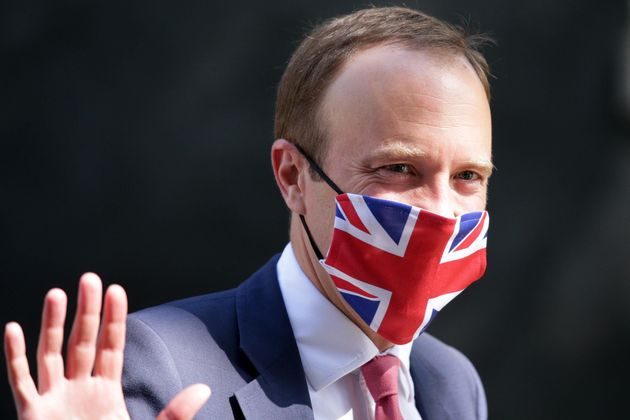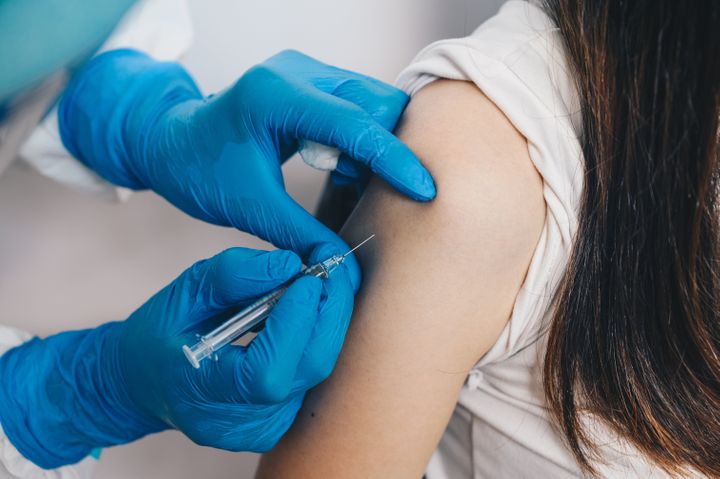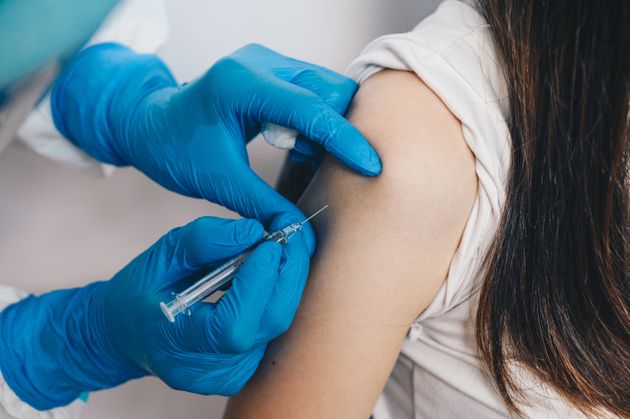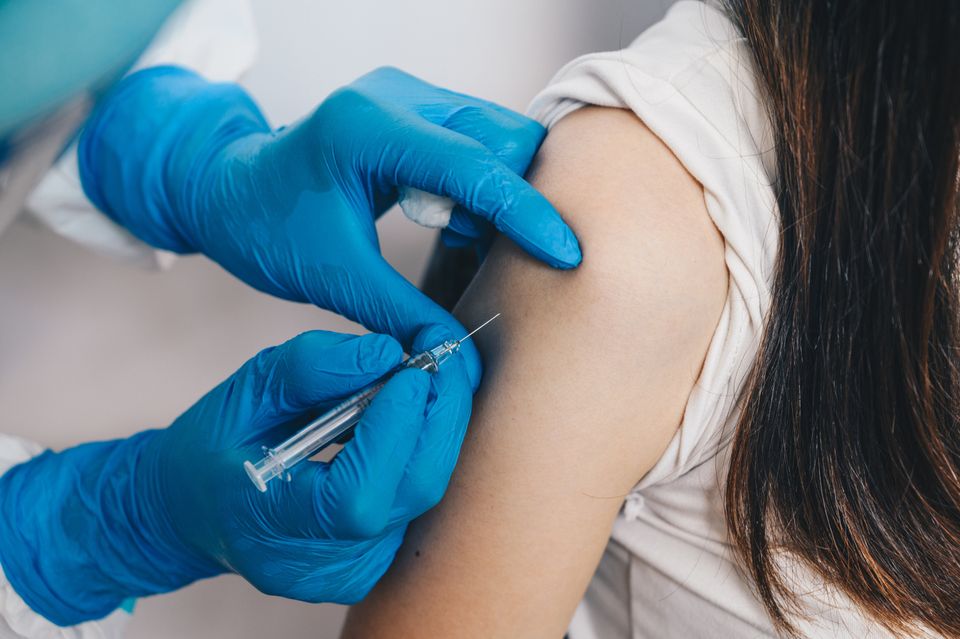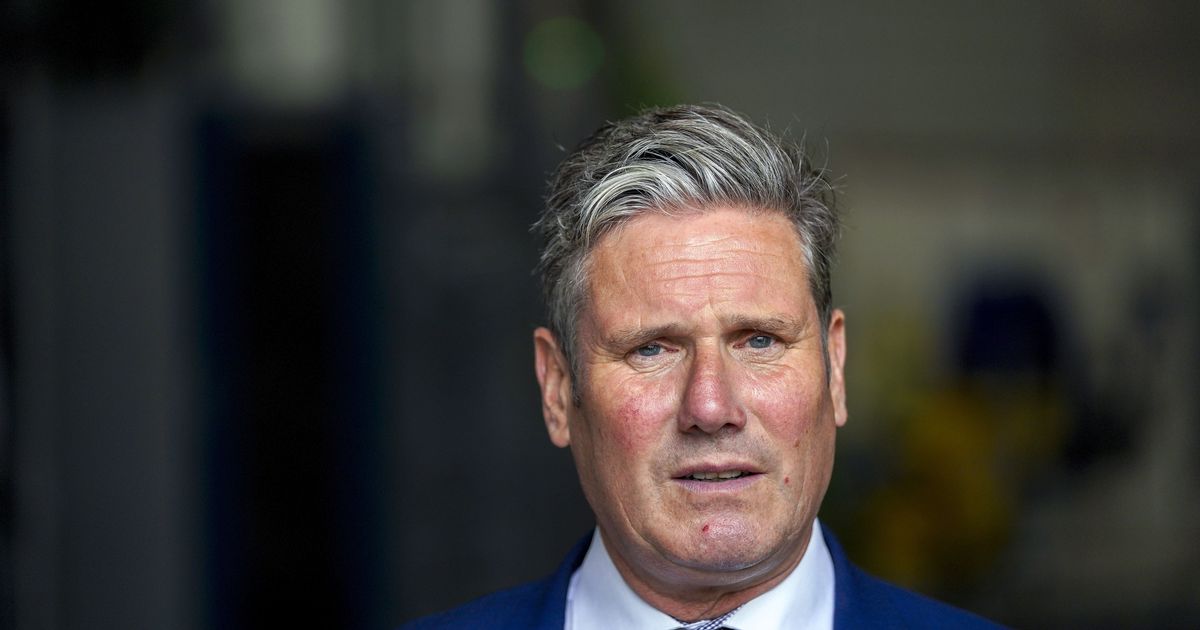WPA Pool via Getty Images
Boris Johnson will signal how England can “learn to live with” Covid when he uses a press conference on Monday to set out his plans to restore people’s freedoms from July 19.
The prime minister will give an update of reviews into social distancing guidelines, working from home and vaccine passports, ahead of a formal announcement on the full lifting of lockdown next week.
The live televised briefing from Downing Street is aimed at giving the public and businesses more time to prepare for unlocking on July 19.
It appears that the PM will go for a “big bang” approach, ditching a whole raft of current requirements to work from home and wear masks on public transport.
The public are also expected to be allowed to order drinks at the bar in pubs for the first time in months, and to attend outdoor mass events. The idea of Covid ‘passports’ has also been shelved.
Some public health experts have warned that lifting all the restrictions at once may risk fuelling the current third wave of Covid cases triggered by the Delta variant of the virus.
On Sunday, Communities Secretary Robert Jenrick said he expected life to “return to normality as far as possible” in England after the “terminus date” due to the success of the vaccine rollout in preventing serious illness.
The cabinet minister told the BBC the country had moved into the “final furlong” of coronavirus restrictions.
Officials said the Prime Minister would on Monday give an update on the next steps on the one metre-plus rule in hospitality venues, the use of masks, and working from home.
As well as publishing the taskforce reviews, an update will also be provided on what is next for care home visits, No 10 said.
Speaking before his announcement, the prime minister said people would have to “exercise judgment” to protect themselves from Covid-19, in a sign the government will shift from legally enforced restrictions to affording people personal choice.
“Thanks to the successful rollout of our vaccination programme, we are progressing cautiously through our road map,” Johnson said.
“Today we will set out how we can restore people’s freedoms when we reach Step 4.
“But I must stress that the pandemic is not over and that cases will continue to rise over the coming weeks.
“As we begin to learn to live with this virus, we must all continue to carefully manage the risks from Covid and exercise judgment when going about our lives.”
With Johnson due to address the nation, Health Secretary Sajid Javid will take responsibility for announcing the government’s plans to parliament on Monday afternoon.
The move follows stern rebukes from Commons Speaker Sir Lindsay Hoyle in recent weeks for ministers deciding to make statements to the press before MPs.
The government said it will not be known until July 12 – seven days before the target date for easing restrictions – whether its four tests for unlocking have been met, given the need to consult the latest data.
Labour said Johnson must reveal how many Covid-related deaths it is willing to accept in the face of rising cases of the Indian strain – also know as the Delta variant – if restrictions are abolished.
Shadow health secretary Jonathan Ashworth said: “We are all desperate to move on from restrictions but with infections continuing to rise steeply thanks to the Delta variant, Boris Johnson needs to outline the measures he will introduce such as ventilation support for building and sick pay for isolation to push cases down.
“Letting cases rise with no action means further pressure on the NHS, more sickness, disruption to education and risks a new variant emerging with a selection advantage.
“So far ‘learning to live with the virus’ had been no more than a ministerial slogan.
“Now we know this is the Government’s strategy, when Sajid Javid addresses the Commons he must explain what level of mortality and cases of long Covid he considers acceptable. And what support will be in place for the most deprived areas where cases are highest and vaccination rates lowest.
“These are important questions ministers now must answer.”

